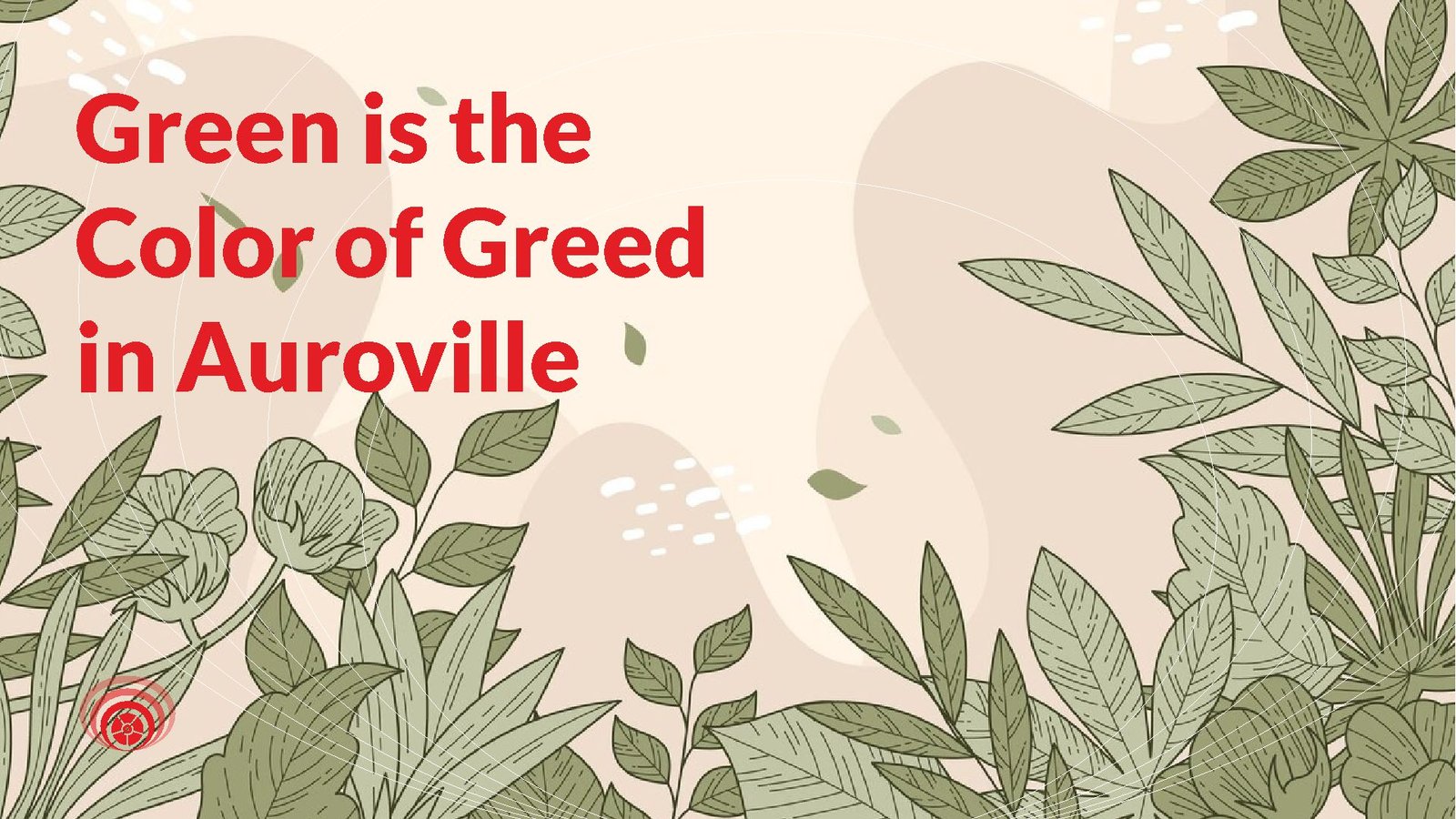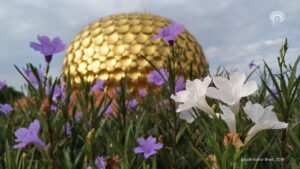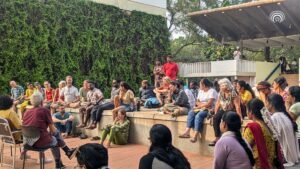
In the picturesque collective of Auroville, which was envisioned as a sanctuary for Human Unity and evolutionary progress, the narrative of environmentalism has taken a troubling turn. Encroachment, misrepresentation, and a self-serving agenda are at the forefront of this issue, wherein the color green has been co-opted as a facade for greed rather than genuine ecological concern.
The Myth of Forests
Contrary to popular belief, Auroville does not boast any real forests; what exists instead are expansive private estates owned by a select few influential families. These fenced-off properties, often marketed as green spaces or ecological havens, serve the interests of a privileged minority rather than the community at large. This raises a critical question: can anyone name a true forest in Auroville that isn’t monopolized by an “owner”?
The concept of forested areas in Auroville has become a convenient narrative for these landowners, who often cloak their motives in environmentalism. The original vision of Auroville as a shared, sustainable community is compromised by these private claims to land that should be accessible to all residents. Instead of fostering a communal relationship with nature, these estates create barriers—physically and ideologically—preventing genuine ecological engagement and cooperative stewardship of the land.
The appropriated land, initially intended to serve the broader community, now contributes to a paradox in Auroville’s development. The ambitious plans for an 80% green space are undermined by the reality of these private holdings. Instead of flourishing biodiversity and communal gardens, we see a landscape dominated by exclusive access, where the few dictate the terms of use and restrict the potential for shared ecological experiences.
Moreover, the rhetoric surrounding these properties often emphasizes the need for ecological preservation while simultaneously ignoring the ecological footprint created by the very developments they promote. Restaurants, guesthouses, and commercial enterprises masquerade as eco-friendly ventures, yet they perpetuate a cycle of exploitation that is antithetical to Auroville’s foundational ideals.
As Auroville grapples with its identity in the face of rapid development, it is crucial to ask: what does it mean to truly preserve the environment? The promise of Auroville as “the city the Earth needs” is at risk if we allow the narrative of green to be co-opted by a few individuals. The vision for Auroville should be inclusive, focusing on creating genuine spaces of connection between people and nature—spaces that reflect the true spirit of collective, rather than the self-serving interests of a select few.
In this light, the myth of forests in Auroville serves as a powerful reminder that we must scrutinize our understanding of environmentalism and ensure that our actions align with the original vision of inclusivity, sustainability, and shared responsibility for the land. The journey toward Auroville’s ideal future requires a collective commitment to dismantling the barriers created by greed and reclaiming the narrative of stewardship for all.
Farcical Elections and Family Networks
The influential families in Auroville have orchestrated so-called elections, creating a charade of democratic processes that often result in selecting their family members and close allies for positions of power. This system ensures that the narrative of environmental concern is maintained, while in reality, it secures their grip on the community and its resources. Under the pretext of environmentalism, activities that would typically be scrutinized—like pizzerias, guesthouses, restaurants, consulting businesses, and therapy services—flourish. Green is used as a convenient cover for practices that deviate far from the principles of sustainability and collective well-being.
The Original Vision vs. Current Reality
What began as a noble cause to rehabilitate Auroville’s barren lands has devolved into a complex web of encroachment, where many have claimed ownership in the name of greenery. The original goal of creating a harmonious, sustainable city has been overshadowed by the ambitions of those who have seized land under the pretext of ecological concern. The greed mentality has turned the green narrative into a need for control and profit, rather than a commitment to Auroville’s founding ideals.
The Voice of the Silent Majority
While a few loud voices dominate the discourse, many residents—sincere and kind-hearted individuals—hold no attachment to ownership. They are often overshadowed by the influential families who claim to represent everyone, yet their actions hold the genuine interests of the quiet majority at ransom. The disparity between these factions highlights a fundamental issue: the co-opting of environmentalism as a tool for power and control.
It is imperative for the Auroville community to recognize that the green narrative, as it stands, serves a greater agenda of greed. We must call a spade a spade and confront the realities of land ownership and environmental exploitation head-on. Auroville is designed to be 80% green, with a vision of transforming 50% of the city into green spaces within just 5 square kilometers, alongside a 15 square kilometer greenbelt. Holding back Auroville’s progress is not beneficial for anyone; rather, it hampers the potential for Auroville to become a model city in a world grappling with crises.
Towards a Sustainable Future
Imagine a future where Auroville stands as a sample of hope, demonstrating how urban spaces can be both beautiful and green despite the challenges of human habitation. By allowing progress and collaboration to flourish, we can create an example for the world on how to densify and beautify a city while respecting its ecological principles. It’s time to reevaluate our relationship with the land and shift the narrative from one of greed to genuine environmental stewardship, ensuring that Auroville truly embodies the Vision for which it was created.





